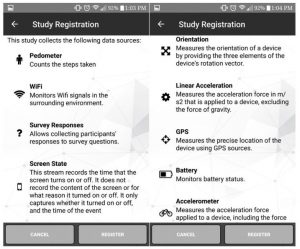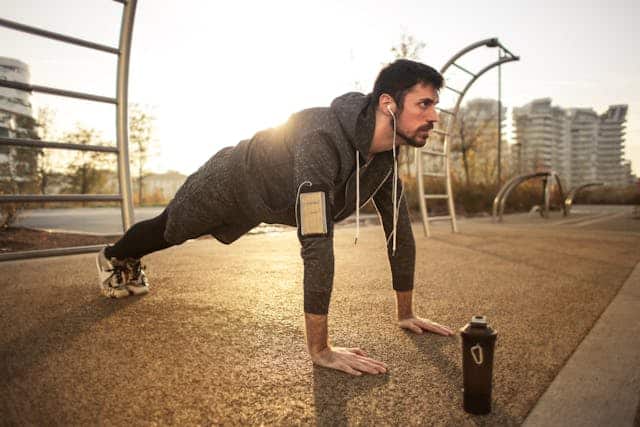
Exercising in Retirement May Be Easier Than We Thought
August 15, 2019
High Levels of Sedentary Time Associated with Significant Increase in Mortality Risk
August 28, 2019Today’s post comes from Dr. Tarun Katapally, discussing his new paper entitled “Methodology to Derive Objective Screen-State from Smartphones: A SMART Platform Study” recently published in the International Journal of Environmental Research and Public Health. More on Tarun can be found at the bottom of this post.
Background
Screen time on multiple digital devices (i.e., computer, mobile phone, tablet, television) due to varied motivations (work, leisure, entertainment, gaming, etc.) has become an integral part of population behaviour influencing physical inactivity.1,2 However, there is a significant gap in evidence related to objective screen time (i.e., screen-state) accumulated over mobile devices, as screen time is predominantly assessed using self-report questionnaires without taking into account the variation of these behaviours across different digital devices, such as smartphones. As part of the SMART Platform,3 an innovative citizen science and mobile health initiative, this study aimed to develop an accurate, reliable, and replicable methodology to derive prospective, objective screen time usage from citizen-owned smartphones functioning on both Android and iOS platforms.
What did we do?
Data were obtained from the adult cohort of the SMART Platform,3,4 which consisted of a convenience sample of 538 citizen scientists (≥18 years) from the two largest urban centres in Saskatchewan, Canada (Regina and Saskatoon). Participants used a custom-built smartphone app that captured data for 8 consecutive days to provide a complex series of objective and subjective measures (Figure 1).

Figure 1. Objective and subjective measures of SMART Platform.
Objective smartphone screen-state was captured through the screen-state sensor that recorded every ‘ON’ and ‘OFF’ screen notification. Subjective screen time data were obtained via the modified sedentary behavior questionnaire5 that not only captured various motivations for screen time accumulation (gaming, texting, etc.), but also the varied devices across which screen time was accumulated. Only those participants who provided screen-state data on at least 2 weekdays and 1 weekend day, and completed the adapted sedentary behavior questionnaire were included in the study. A novel methodology informed by digital epidemiological techniques and a series of smartphone notification/continuous usage cut-points was developed to derive objective screen-state, which was compared with subjective screen time.
What did we find?
- Objective screen-state from smartphones can be derived and assessed across a range of smartphone notification and continuous usage cut-points that take into consideration varied measurement errors.
- When objective measures were compared with subjective reporting, the results indicated that participants consistently under-reported screen time.
What did this article add?
This study advances a novel, replicable methodology that can be used to prospectively derive objective screen-state from digital mobile devices. The SMART Platform offers an approach to linking objective screen-state and subjective screen time to capture accurate measurement of time spent on mobile devices due to varied citizen motivations (i.e., work, entertainment, gaming). As the there is no indication that digital mobile device usage will decline in the future, and as these devices are increasingly being leveraged for mobile health applications,6-8 it is critical to understand both the positive and negative impacts of this technology on human health. Thus, this methodology is currently being used by the Digital Epidemiology and Population Health Laboratory (DEPtH Lab) at the University of Regina for both active living surveillance and mobile health interventions.9
References
- Stiglic N, Viner RM. Effects of screentime on the health and well-being of children and adolescents: a systematic review of reviews. BMJ open. 2019;9(1):e023191.
- Screen time and young children: Promoting health and development in a digital world. Paediatr Child Health. 2017;22(8):461-477.
- Katapally TR, Bhawra J, Leatherdale ST, et al. The SMART study, a mobile health and citizen science methodological platform for active living surveillance, integrated knowledge translation, and policy interventions: Longitudinal Study. JMIR public health and surveillance. 2018;4(1):e31.
- SMART Platform: A mobile health and citizen scientist platform. [Internet]. https://www.smartstudysask.com/about. Accessed August 13, 2019.
- Rosenberg DE, Norman GJ, Wagner N, Patrick K, Calfas KJ, Sallis JF. Reliability and validity of the Sedentary Behavior Questionnaire (SBQ) for adults. J Phys Act Health. 2010;7(6):697-705.
- Grekin ER, Beatty JR. Mobile Health Interventions: Exploring the Use of Common Relationship Factors. 2019;7(4):e11245.
- Song T, Qian S. Mobile Health Interventions for Self-Control of Unhealthy Alcohol Use: Systematic Review. 2019;7(1):e10899.
- Yang Q, Van Stee SK. The Comparative Effectiveness of Mobile Phone Interventions in Improving Health Outcomes: Meta-Analytic Review. 2019;7(4):e11244.
- DEPtH Lab. [Internet]. https://www.schoolofpublicpolicy.sk.ca/csip/research-labs/DEPtH-Laboratory.php#Projects. Accessed August 13, 2019.
Funding Source: This study was funded by the Establishment Grant (#3779) of the Saskatchewan Health Research Foundation.

About the author: Dr. Tarun Katapally is an Associate Professor and Patient-Oriented Research Leader at the Johnson Shoyama Graduate School of Public Policy, University of Regina. He established the Digital Epidemiology and Population Health (DEPtH) Laboratory in 2017. The DEPtH Lab implements the SMART Platform developed by him by combining the concepts of citizen science, community-based participatory research, and systems science. He is also the country leader for India for the development of global report cards on the physical activity for children and youth. He has co-founded Active Healthy Kids India, which promotes active living policies in the second-most populous nation in the world. Dr. Katapally’s expertise is in linking advanced mixed-methods and complex analytical techniques with community-based participatory and patient-oriented research to understand the impact of health systems and policies on population health. Increasingly, his focus is on the usage of digital epidemiological tools in informing health policies and programs through integrated knowledge translation to promote the health of vulnerable populations.




